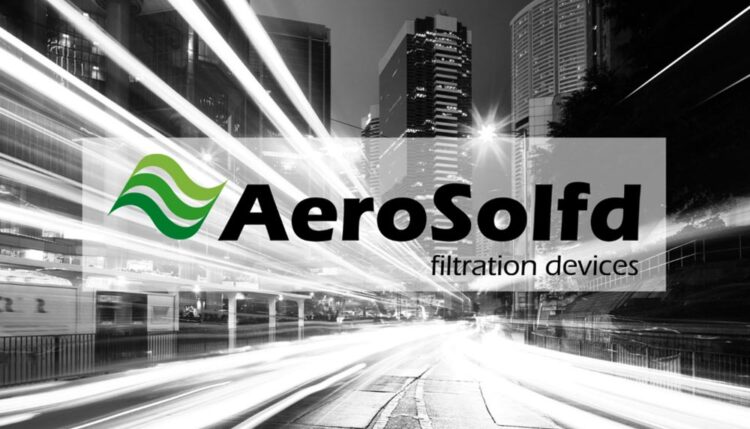Filters for cleaner air

(c) AeroSolfd
MANN+HUMMEL and VERT present AeroSolfd project and three retrofit solutions to reduce traffic-related emissions. AeroSolfd will be present at FILTECH, the largest filtration show worldwide, which will take place in Cologne from 14 to 16 February 2023.
Air pollution is a complex problem to be tackled. The co-funded EU-Project AeroSolfd aims to reduce traffic-related emissions through the deployment of three retrofit (filtration) solutions for tailpipes, brakes and (semi-) closed environments. AeroSolfd will be present at FILTECH, the largest filtration show worldwide, which will take place in Cologne from 14 to 16 February 2023. The project coordinator MANN+HUMMEL will be available at their exhibition stand for questions and exchanges. Additionally, MANN+HUMMEL and project partner VERT Association will hold two presentations addressing the project’s solutions to traffic-related air pollution.
AeroSolfd, an innovation action of Horizon Europe, aims to achieve rapid success in reducing the overall footprint of existing fleets by developing retrofit filters for tailpipes already addressed by VERT, as well as brakes and (semi-)enclosed environments. This can involve filtering emissions at the source (exhaust and brake) or, in semi-enclosed environments, filtering the air to reduce overall exposure.
Steinbeis Europa Zentrum as a project partner supports the administrative project management and is responsible for communication and dissemination activities as well as the exploitation of project results.
The overall project methodology is based on two pillars: A) Development to bring existing retrofit technologies from product validation/demonstration to market-readiness (TRL 4-7 to TRL 8), and B) Market preparation, including sustainability assessment, public awareness, stakeholder engagement and proposal of incentive schemes.
Highly efficient ultrafine particle filter system
Emissions of highly toxic but invisible ultrafine particles from petrol engines can reach levels similar or higher to those from diesel engines in untreated exhaust and therefore pose a widely underestimated health and climate risk. Exhaust gas filtration for petrol engines (GPFs) can effectively reduce these emissions.
VERT Association identified the technical, legal and, to some extent, political framework conditions for the introduction of particle filters and the prospects for a widespread introduction of exhaust gas filtration for petrol engines (GPFs). The anticipated very long presence of petrol engines in individual transport (more than 40 years) confirms the relevance of the efforts taken.
A technology is needed that must be flexible enough to be used on in-service vehicles, and the EU is looking for a technical demonstration that proves this technology can be made available within three years at an affordable implementation cost. As part of the AeroSolfd project, VERT will therefore test a statistical sample of 1000 vehicles for ultrafine particle emissions to get a sense of the scale and urgency of the problem and retrofit 50 vehicles of different makes in three different countries. VERT presents the best available technology for this project and the first results with different GPFs in terms of size-specific filtration and toxic gas emission.
Filtration devices for brake and (semi-)closed environments
Air pollution remains a major health risk for premature death. A significant contribution is traffic-related. While exhaust emissions have been significantly reduced over the years through ongoing legislation, non-exhaust emissions will for the first time be subject of the planned EURO7 legislation for new vehicles. For the existing vehicle fleet, retrofit solutions could address this issue.
MANN+HUMMEL focuses on the development of two solutions: the brake dust particle filter aims for reducing emission directly at the source. Stationary filtration solutions for (semi-)closed environments target reducing fine dust exposure levels at e.g. metro stations. In the presentation, MANN+HUMMEL outlines the ongoing development from product validation/demonstration to market-readiness (TRL 4-7 to TRL 8) and the methodology considered for the next steps, alongside the initial results for assessing the status quo of brake emissions on city bus routes as well as exposure at metro stations.
Fast track to cleaner urban air
The three filtration solutions that AeroSolfd is developing to reduce traffic-related air pollution enable cleaner mobility and a healthier environment for everyone. Making an appearance at this renowned filtration event, AeroSolfd takes the next step into the public, as the project will continue to do in March at VERT Forum.
For further information contact:
Dr-Ing. Martin J. Lehmann
Project Coordinator
+49 7141 98 2271
Martin.Lehmann@mann-hummel.com
Marta Escoto
Steinbeis Europa Zentrum
marta@escoto@steinbeis-europa.de
Wissenschaftliche Ansprechpartner:
Dr-Ing. Martin J. Lehmann
Project Coordinator
+49 7141 98 2271
Martin.Lehmann@mann-hummel.com
Weitere Informationen:
http://www.vert-certification.eu/ – zu VERT
https://aerosolfd-project.eu/ – Projektwebsite Aerosolfd
Media Contact
All latest news from the category: Machine Engineering
Machine engineering is one of Germany’s key industries. The importance of this segment has led to the creation of new university degree programs in fields such as production and logistics, process engineering, vehicle/automotive engineering, production engineering and aerospace engineering among others.
innovations-report offers informative reports and articles covering technologies such as automation, motion, power train, energy, conveyor, plastics, lightweight construction, logistics/warehousing, measurement systems, machine tools and control engineering.
Newest articles

First-of-its-kind study uses remote sensing to monitor plastic debris in rivers and lakes
Remote sensing creates a cost-effective solution to monitoring plastic pollution. A first-of-its-kind study from researchers at the University of Minnesota Twin Cities shows how remote sensing can help monitor and…

Laser-based artificial neuron mimics nerve cell functions at lightning speed
With a processing speed a billion times faster than nature, chip-based laser neuron could help advance AI tasks such as pattern recognition and sequence prediction. Researchers have developed a laser-based…

Optimising the processing of plastic waste
Just one look in the yellow bin reveals a colourful jumble of different types of plastic. However, the purer and more uniform plastic waste is, the easier it is to…



